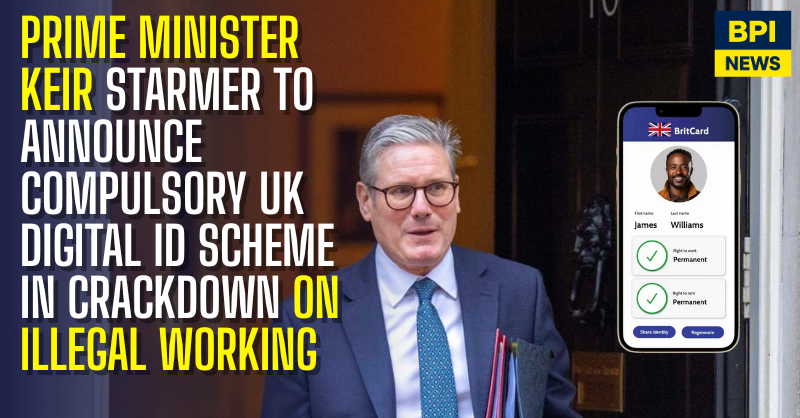Sir Keir Starmer is set to announce plans for a UK-wide compulsory digital ID scheme in a speech on Friday, government sources have confirmed.
The prime minister believes the system will help crack down on illegal working while modernising state services. A consultation will be launched to examine how the scheme could function, particularly for people without smartphones or passports.
Labour’s last attempt to introduce ID cards was scrapped by the Conservative-Liberal Democrat coalition. However, Starmer has argued that “the debate has moved on” in the past two decades, noting that Britons already carry far more digital identification than they once did.
Under the proposals, individuals would be issued a digital ID linked to a central database. Employers and officials would be able to verify a person’s right to live and work in the UK electronically, rather than relying solely on physical documents. Since 2022, some routes for online verification have existed, but ministers are seeking a more consistent national system.
Cabinet Office minister Pat McFadden, who recently visited Estonia to study its advanced e-government system, said digital ID could improve access to services such as healthcare, voting, and banking.
The scheme has drawn sharp criticism from opposition parties. Conservative leader Kemi Badenoch questioned whether it would reduce illegal migration, saying digital ID was “not really going to solve the problem.” Reform UK condemned the plan as a “cynical ploy” that would restrict freedoms for law-abiding citizens, arguing that “those already breaking immigration law will not suddenly comply.”
The Liberal Democrats, who previously opposed ID cards, have suggested they may be willing to reconsider. Leader Sir Ed Davey told the party’s conference that opposition should not be “knee-jerk” and that the debate should be re-examined.
Employers are already legally required to check workers’ right to work in the UK, with digital verification available for British and Irish passport holders and online schemes in place for non-citizens whose immigration status is recorded electronically. Officials believe a compulsory scheme could reduce the use of fraudulent documents and improve enforcement efforts.


